STeP Talks
Book presentation: The Privacy Fallacy. Harm and Power in the Information Economy
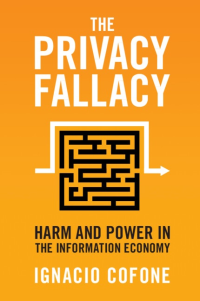
In this edition of STeP Talks, we will be joined by Igancio Cofene, who holds the Research Chair in A.I. Law & Data Governance at McGill University, Montréal, Canada. He will share his latest book ‘The Privacy Fallacy. Harm and Power in the Information Economy’ with us: ‘Our data is besieged by tech companies, leading to hidden AI harms in the information economy. Companies can do this because our laws are built on outdated ideas that trap lawmakers, regulators, and courts into wrong assumptions, resulting in ineffective legal remedies to one of the most pressing concerns of our generation. Drawing on behavioral science, social data science, and economics, Ignacio Cofone challenges existing laws and reform proposals and dispels enduring misconceptions about AI-driven interactions. This exploration offers a view of why current laws and regulations fail to protect us against corporate digital harms, particularly those created by AI. Cofone then proposes a better response: meaningful accountability for the consequences of corporate data practices. Ultimately, accountability requires creating a new type of liability system for AI harms that recognizes the value of privacy.’ Our panelists will engage in a discussion with Ignacio on the topic of his book.
Join us on July 2nd from 11.00-12.30 online or on-site in Groningen (Lokinzaal (floor -1), Röling Building, Oude Boteringestraat 18) to discuss privacy challenges by registering here!
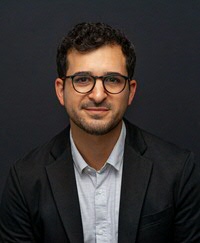
Ignacio Cofone
Ignacio Cofone is the Canada Research Chair in AI Law & Data Governance at McGill University Faculty of Law, where he teaches Privacy Law and AI Regulation, and an Affiliated Fellow at the Yale Law School Information Society Project. His research explores how law should adapt to technologically-driven social and economic change with a focus on data harms and AI decision-making.

Jonida Milaj-Weishaar
Dr Jonida Milaj-Weishaar is Assistant Professor in Technology Law and Human Rights at the Security, Technology, and e-Privacy (STeP) research group, Groningen University. Her main research focus is on the challenges that technology creates for the protection of fundamental rights of individuals. She is especially interested in new developments in the field of AI and Data Spaces. Jonida is a research fellow at the Information Society Law Center, University of Milan, and she is also a visiting lecturer at the Central University of Political Science and Law in Beijing.

Sophia Salziger
Sophia Salziger is a PhD candidate at the University of Groningen and a member of the STeP research group. Her research focuses on civil liability for non-material damage in the event of data protection violations. She examines monetary compensation for non-material damage, such as psychological distress, damage to reputation and infringements of personality rights. For this purpose, she conducts a comparative study of Article 82 GDPR within the Transboundary Legal Studies and Private Law departments.
Keep an eye out for more updates on this STeP Talk!
Automated Decision-Making under the GDPR and beyond: Current Developments
Join us on the 17th of Mayfrom 9-11h online or onsite in Groningen (Lokinzaal (floor -1), Rölingbuilding, Oude Boteringestraat 18) for a discussion on issues concerning automated decision-making under article 22 GDPR by registering here!

Paul de Hert
Paul is Full Professor at the Faculty of Law & Criminology at the VUB and an associate professor at the Law School/Tilburg Institute for Law and Technology (TILT), University of Tilburg. He is Director of the VUB’s Research Group on Human Rights, Vice-Dean of the Faculty of Law & Criminology, and a former director of the LSTS and of the Department of Interdisciplinary Studies of Law and Senior Researcher in iBOF project ‘Future-proofing human rights, Developing thicker forms of accountability’. His talk is titled ‘The role of governments in society. Teaching by example’.
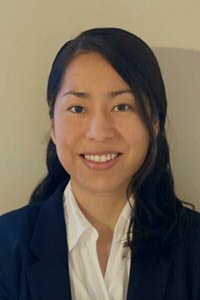
Margaret Warthon
Margaret is a PhD candidate at the University of Groningen. She holds a law degree from the Pontifical Catholic University of Peru and an LL.M. in Intellectual Property Law from the University of Göttingen. Her research aims to develop mechanisms that balance data protection transparency requirements with competing interests in the public sector's use of biometric decision-making systems.
Automated mobility: legal aspects of unmanned ships and self-driving cars
The maritime sector faces challenges to become more sustainable and remain safe, secure and efficient at the same time. To learn more about these challenges that the maritime sector faces in particular in light of increased automation, the AUTOROBUST project on robust and safe control of remotely operated offshore vehicles will be presented at our March STeP Talks. The use of maritime automated surface ships (MASS) may contribute to reaching these sustainability, safety and efficiency goals. Unmanned ships not only pose technical challenges, they also give raise a large number of legal questions. Who is responsible for a ship without a captain on the bridge and how should the concept of good seamanship be interpretated? We will discuss the latest developments in regulating unmanned ships, learn about the particularities of the maritime world and discover parallels and differences between (regulating) ships and other modes of (unmanned) transport as similar legal questions and challenges are relevant in relation to self-driving cars. During this STeP Talk, we will explore how the two fields can supplement each other.
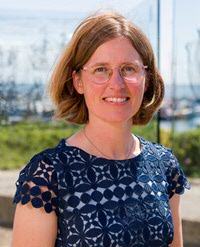
Welmoed van der Velde
Welmoed is a maritime lawyer who works as a professor in applied sciences (lector) at NHL Stenden University of Applied Sciences. She conducts applied research in areas where law and technology meet, for example on the legal aspects of unmanned ships. Welmoed also acts as a deputy-judge at the Court of Appeal in The Hague and the Maritime Disciplinary Court in Amsterdam. She obtained her PhD at Rijksuniversiteit Groningen with a thesis on the position of seagoing ships in private international law in 2006. Afterwards, she worked as a legislative lawyer at the Ministry of Justice in which capacity she drafted legislation and negotiated international treaties in the field of contract and liability law, transport law and private international law.

Ming Cao
Ming Cao has since 2016 been a professor of networks and robotics with the Engineering and Technology Institute (ENTEG) at the University of Groningen, the Netherlands, where he started as an assistant professor in 2008. Since 2022 he is the director of the Jantina Tammes School of Digital Society, Technology and AI at the same university. He received the Bachelor degree in 1999 and the Master degree in 2002 from Tsinghua University, China, and the Ph.D. degree in 2007 from Yale University, USA. From 2007 to 2008, he was a Research Associate at Princeton University, USA. He worked as a research intern in 2006 at the IBM T. J. Watson Research Center, USA. He is the 2017 and inaugural recipient of the Manfred Thoma medal from the International Federation of Automatic Control (IFAC) and the 2016 recipient of the European Control Award sponsored by the European Control Association (EUCA). He is an IEEE fellow and has received a number of prestigious research grants, e.g. NWO vici (2023) and ERC consolidator (2017) and starting (2011) grants. His research interests include autonomous robots and multi-agent systems, complex networks and decision-making processes.

Nynke Vellinga
Nynke Vellinga works at the STeP research group, Department of Transboundary Legal Studies, University of Groningen. She received her PhD in 2020 for the dissertation 'Legal Aspects of Automated Driving. On Drivers, Producers, and Public Authorities' from the same university. After her doctorate, she continued her research in the field of autonomous mobility and law. Her research focuses on legal questions surrounding traffic law, liability, insurance, vehicle requirements, data protection, and cybersecurity. She has actively contributed to, among other things, the ITU Focus Group on Assisted and Automated Driving of the International Telecommunication Union, leading to a technical report under her editorship. In addition, Nynke is an international research fellow at the Information Society Law Center (ISLC) of the "Cesare Beccaria" Department of Legal Sciences, University of Milan.
Regulating New Surveillance Technologies at Work. A Human Computer Interaction Approach
During this seminar, Sandy Gould (University of Cardiff) will illustrate how workplace surveillance is advancing with virtual and physical sensors using machine intelligence. Critics often link these systems to the history of Scientific Management critiques. He will show how, instead, such understandings of today's technology overlook crucial changes in workplace measurement. Building on Sandy Gould's, Michele Molè (University of Groningen) will outline the legal challenges in the EU to protect workers' privacy and fundamental rights. The AI Safety Initiative Groningen will moderate the Q&A.
Join us on the 19th of February from 17.00-19.00h online or on-site in Groningen (Lokinzaal (floor -1), Röling Building, Oude Boteringestraat 18).

Sandy Gould
Sandy Gould is Senior Lecturer at the School of Computer Science and Informatics at Cardiff University. His research generally focuses on technology in the workplace, but he has worked on a number of human-centred computing topics including interruptions, multitasking and interruptionism, emoji and interaction design.
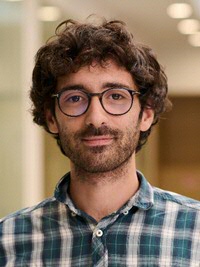
Michele Molè
Michele Molè is a PhD candidate at the University of Groningen Law Faculty. His research focuses on the regulation of workplace surveillance and new technologies in the EU.
The discussion will be moderated by the AI Safety Initiative Groningen. This initiative empowers students, academics, everyone, to ensure that AI is safe and responsible, for current and future generations. AISIG's offerings include AI Safety courses, hackathons, in-depth discussions, speaker events featuring thought leaders; and an evolving array of exciting opportunities.
Article 25 GDPR: Engineering data protection into digital innovation
In this STeP Talk, three experts will share their perspective on article 25 of the General Data Protection Regulation on privacy by design and privacy by default.
Join us on the 17th of January from 13.00-14.30h online or on-site in Groningen (Lokinzaal (floor -1), Röling Building, Oude Boteringestraat 18).

Jaap-Henk Hoepman
Jaap-Henk Hoepman (1966) is currently a guest professor at the PRISEC - Privacy And Security group of Karlstad University, Sweden. He is also an associate professor at the Digital Security group of the Radboud University, Nijmegen, the Netherlands, working for the iHub, the interdisciplinary research hub on Digitalization and Society. In addition, he is an associate professor in the IT Law section of the Faculty of Law of the University of Groningen. Moreover, he is a principal scientist (and former scientific director and co-founder) of the Privacy & Identity Lab.
He studies privacy by design and privacy friendly protocols for identity management and the Internet of Things. He speaks on these topics at national and international congresses and publishes papers in (inter)national journals. He also appears in the media as security and privacy expert, and writes about his research in the popular press. He is actively involved in the public debate concerning security and privacy in our society.
In October 2021 his book Privacy Is Hard and Seven Other Myths. Achieving Privacy through Careful Design appeared at MIT Press.

Efstratios Koulierakis
Efstratios Koulierakis is a PhD candidate at the Department of Transboundary Legal Studies, in the Graduate School of Law of the University of Groningen, and a member of the STeP research group. He holds a law degree from the National and Kapodistrian University of Athens, and an LL.M with distinction from KU Leuven. Efstratios works within the interdisciplinary project KnowGraphs, part of the Marie Skłodowska-Curie actions (grant agreement no 860801). His PhD focuses on the relation between data protection by design and knowledge graphs. His research interests include EU technology law, human rights, and personal data protection.

Monique Kalsi
Monique Kalsi is a PhD researcher focusing on the application of data protection by design and by default obligations resulting under article 25 of the General Data Protection Regulation to biometric technologies. Her research also analyzes if the legal requirements of the data protection by design and by default approach can influence the development of new generation of biometric technologies and improve their acceptability in society. Her Ph.D. is a part of the TReSPAsS-ETN (Training in Secure and Privacy-Preserving Biometrics) project.
Each month, the Security, Technology and ePrivacy research group organizes an exciting workshop on a wider variety of topics related to tech law. Together with a speaker from the STeP research group, an invited speaker from a different institution will shed light on current developments in the field of law and technology. We will cover a broad range of topics, from the digital aspects of the energy transition to AI-generated art and intellectual property. Join us, in Groningen or online, by registering for the STeP Talks below!
We look forward to seeing you there!
For any questions, please contact us via step-talks step-rug.nl

| Last modified: | 15 April 2024 2.03 p.m. |
